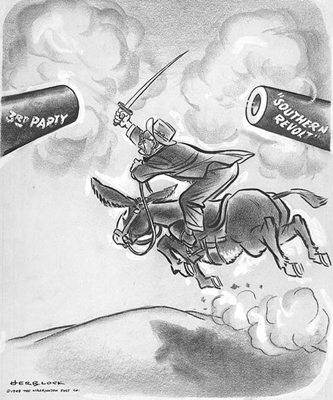Stanley K. Schultz
Professor Emeritus of History
University of Wisconsin-Madison
Notes:
Keyboard Shortcuts
Down Arrow Key = Stop Audio
Up Arrow Key = Resume Play
To use the keyboard shortcuts on your computer you must first click the above play/pause button at the start of each page.
If you do not see an image of Professor Schultz above you must Download and install the latest version of Adobe Flash Player 9
 |
|||||
|
|
|
|||
Hello, welcome again to History 102. I'm Professor Schultz. We've been talking about the New Deal years of Franklin Delano Roosevelt, and about the years of World War II. The death of Roosevelt brought to the White House a man who was a political unknown to most of the American public, a man named Harry S Truman. Initially Truman attempted, as all vice-presidents have done, to follow the policies of his predecessor. But, after gaining a greater amount of comfort in the office and dramatically winning a presidential election in his own right in 1948, Harry Truman announced to the American public that he would bring them a "Fair Deal." His programs would go beyond the New Deal survival programs, he promised, to help redistribute the income of America across the face of American society. Today we want to talk about the transition period from the New Deal to the Fair Deal. We'll ask the question asked by millions of Americans at the time: was the "Fair Deal" just a different shuffle of the former "New Deal" or was it a new game entirely? |
|||||
INDEX
|
|||||
|
|
|||||
